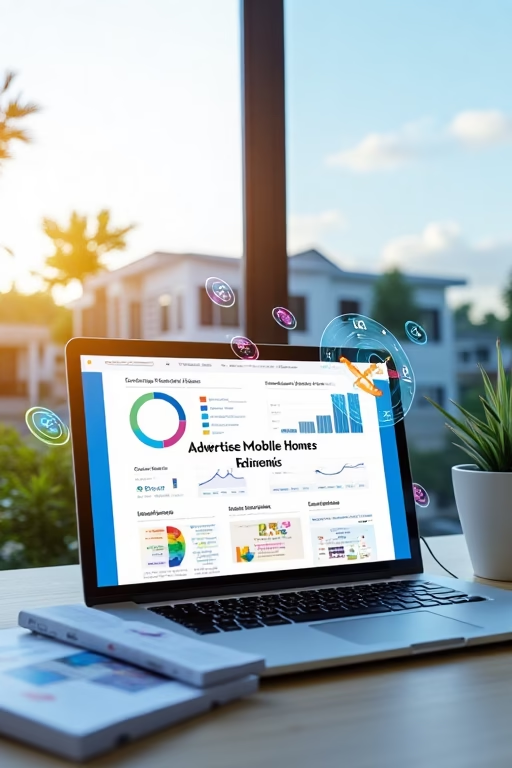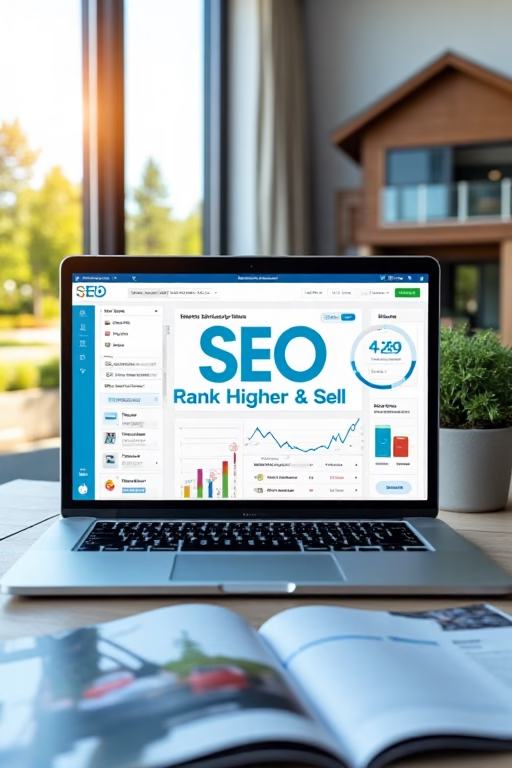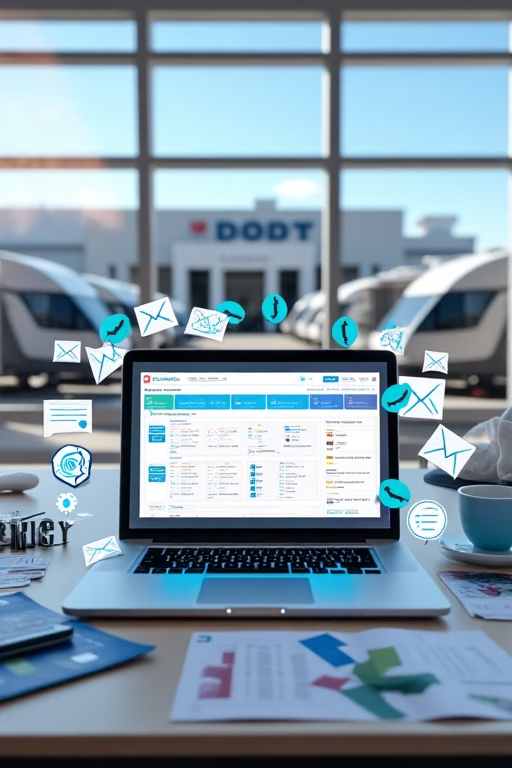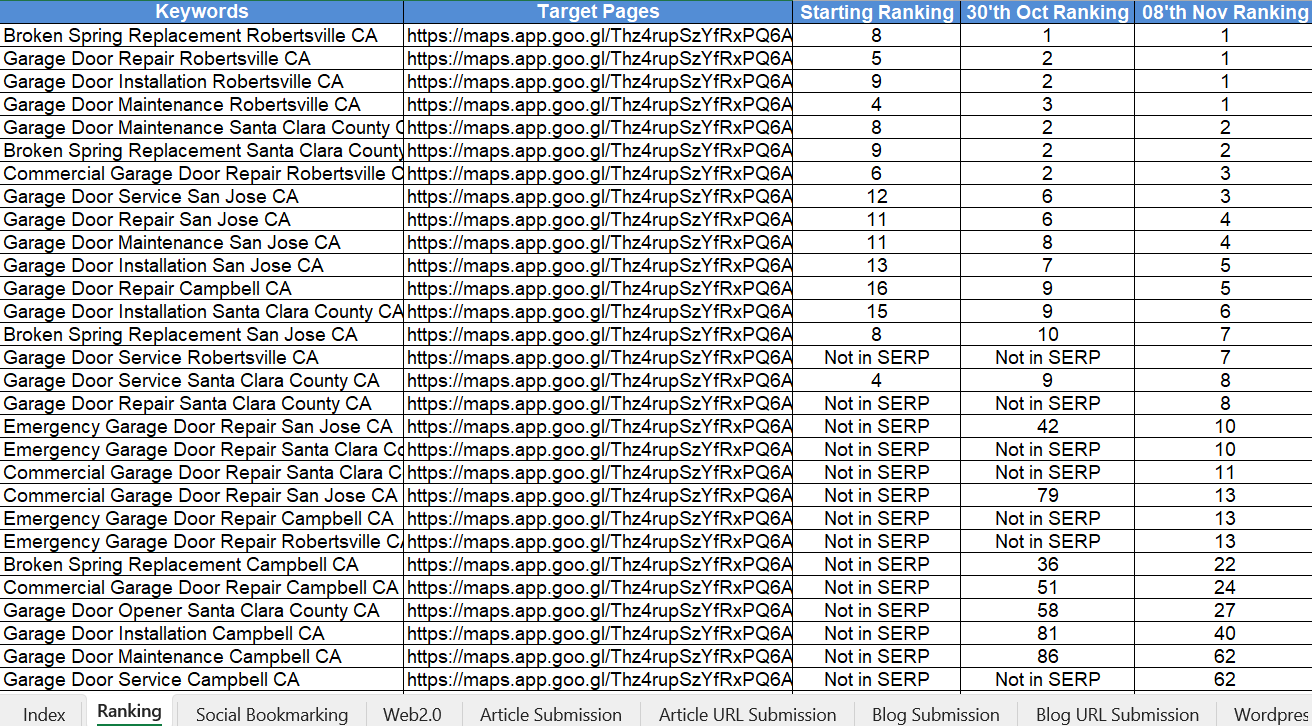The Best Ways to Advertise Mobile Homes Online (Without Paid Ads)
The Best Ways to Advertise Mobile Homes Online (Without Paid Ads)
Your Comprehensive Guide by Market Wiz
Table of Contents
- Introduction: Embracing Organic Mobile Home Marketing
-
SEO Basics for Mobile Home Advertising
- Understanding Organic SEO
- Keyword Research and On-Page Optimization
- Technical SEO and Mobile Optimization
-
Content Marketing & Digital Presence
- Creating Engaging Content
- Blogging, Videos & Testimonials
- Social Media Integration
-
Local SEO & Google My Business
- Optimizing Your GMB Listing
- Geo-Targeted Keywords & Local Citations
- Managing Reviews
-
Link Building Strategies
- Acquiring High-Quality Backlinks
- Guest Posting and Outreach
-
Customer Engagement & Lead Nurturing
- Automated Follow-Up Tactics
- CRM Integration & Drip Campaigns
-
Analytics & Continuous Optimization
- Monitoring Key Metrics
- Data-Driven Adjustments
- Case Studies & Success Stories
- Conclusion & Next Steps
- Frequently Asked Questions (FAQs)
- Additional Keywords for SEO & Content Strategy
Introduction: Embracing Organic Mobile Home Marketing
With the rising costs of paid advertising and a growing consumer interest in sustainable living, mobile home dealers are increasingly turning to organic marketing strategies to reach potential buyers. Advertising mobile homes online without relying on paid ads is not only cost-effective—it builds trust, credibility, and long-term customer relationships.
In this ultimate guide, Market Wiz provides a step-by-step blueprint for mobile home dealers to rank higher on Google and attract quality leads organically. From SEO fundamentals and content marketing to local optimization and advanced customer engagement techniques, this guide covers all the essential strategies to boost your online presence and drive sales.
Whether you are a local mobile home dealer or a national retailer, these strategies will empower you to leverage digital marketing effectively and achieve sustainable growth in a competitive market.
SEO Basics for Mobile Home Advertising
Understanding Organic SEO
Organic SEO is the practice of optimizing your website and content so that it ranks naturally in search engine results, without paying for ads. For mobile home dealers, this means ensuring that your online presence is robust and optimized for the specific keywords and phrases your potential buyers are searching for.
A well-executed organic SEO strategy builds credibility, increases visibility, and drives sustainable traffic to your website. This is a long-term investment that can yield consistent results over time.
Keyword Research and On-Page Optimization
Start by identifying the keywords that potential buyers use when searching for mobile homes. Utilize tools like Google Keyword Planner, SEMrush, or Ahrefs to uncover high-volume, relevant keywords and long-tail phrases.
Incorporate these keywords naturally into your website’s content, including meta titles, descriptions, header tags, and image alt texts. On-page optimization helps search engines understand your content and rank your pages accordingly.
Technical SEO and Mobile Optimization
Technical SEO involves improving the backend structure of your website to ensure fast load times, easy crawlability, and overall site performance. With mobile usage at an all-time high, a responsive, mobile-friendly design is critical.
Ensure that your website is optimized for both desktop and mobile users to improve user experience and boost your search rankings.
Content Marketing & Digital Presence
Creating Engaging Content
Content is king in organic marketing. Develop high-quality, informative content that addresses the needs and interests of potential buyers. Write blog posts, guides, and articles about topics such as the benefits of mobile homes, financing options, design trends, and maintenance tips.
Engaging content not only improves your SEO but also builds trust with your audience and positions your dealership as an industry leader.
Blogging, Videos & Customer Testimonials
Consistently updating your website with fresh content is key to attracting organic traffic. Create blog posts and videos that showcase your mobile homes, provide virtual tours, and share customer testimonials. These success stories serve as social proof and encourage potential buyers to trust your brand.
Leveraging Social Media
Use social media platforms like Facebook, Instagram, and YouTube to promote your content and engage with potential buyers. Sharing your blog posts, videos, and testimonials on social media not only drives traffic to your website but also enhances your digital presence.
Local SEO & Google My Business
Optimizing Your Google My Business Listing
For mobile home dealers, local SEO is crucial. Claim and verify your Google My Business (GMB) listing and ensure that all your business details—such as name, address, phone number, website, and operating hours—are accurate.
Enhance your GMB profile with high-quality photos, videos, and regular posts about your latest inventory and promotions. An optimized GMB listing increases your visibility in local searches and on Google Maps.
Geo-Targeted Keywords and Local Citations
Incorporate geo-targeted keywords into your GMB profile and website content. For example, phrases like “mobile home dealer in [City]” help your business appear in local search results. Ensure consistency in your business details across all online directories and citation sites.
Managing Customer Reviews
Customer reviews play a significant role in local SEO. Positive reviews build trust and enhance your local search rankings. Encourage satisfied customers to leave reviews and respond promptly to feedback to maintain a strong online reputation.
Link Building Strategies
Acquiring High-Quality Backlinks
Backlinks from reputable websites act as endorsements for your site and improve its authority in the eyes of search engines. Focus on earning high-quality backlinks from local directories, industry-specific websites, and authoritative blogs in the housing and real estate sectors.
Guest Posting and Outreach
Guest posting on relevant websites is a proven strategy to build your backlink profile and reach a wider audience. Reach out to industry blogs, local news sites, and online magazines to contribute valuable content that links back to your website.
Customer Engagement & Lead Nurturing
Automated Follow-Up Tactics
Timely follow-ups are critical to converting leads into buyers. Use automated email campaigns and drip sequences to nurture leads with personalized content that addresses their specific needs and interests.
Email Drip Campaigns and CRM Integration
Integrate your lead capture forms with a Customer Relationship Management (CRM) system to automate follow-ups. Drip campaigns that send targeted emails based on customer behavior can significantly improve conversion rates by keeping your dealership top-of-mind.
Analytics and Continuous Optimization
Monitoring Key Performance Metrics
Track the success of your SEO and content marketing efforts using tools like Google Analytics and Search Console. Monitor metrics such as organic traffic, bounce rates, conversion rates, and keyword rankings to understand how well your strategies are working.
Data-Driven Adjustments
Use the insights from your analytics data to continuously optimize your strategy. A/B testing, customer feedback, and performance reviews are crucial for making informed adjustments that improve your online presence and lead generation over time.
Case Studies & Success Stories
Real-world examples highlight the effectiveness of organic marketing strategies for mobile home dealers. For example, one dealer increased their organic leads by 70% within one year by optimizing their website, improving their GMB listing, and launching a targeted content marketing campaign.
Another dealership achieved a 60% improvement in local search rankings and a significant boost in conversion rates by focusing on local SEO and customer engagement through social media and automated follow-ups. These case studies demonstrate that a well-executed organic strategy can deliver remarkable results without relying on paid ads.
Conclusion & Next Steps
To dominate Google search and attract more buyers for mobile homes, dealers must embrace a comprehensive organic marketing strategy. By investing in robust SEO practices, creating high-quality content, optimizing your local presence through Google My Business, and nurturing leads with automated follow-ups, you can build a sustainable online presence that drives long-term growth.
Start by auditing your current digital assets and implementing the strategies outlined in this guide. Continuous monitoring, testing, and data-driven adjustments will help you stay ahead of the competition and achieve a higher return on investment.
For further expert insights and advanced digital marketing strategies, visit our Digital Marketing Insights section on Market Wiz. Embrace organic growth and watch your mobile home sales soar in 2024 and beyond.
Frequently Asked Questions (FAQs)
1. What is organic SEO?
Organic SEO is the process of optimizing your website to rank naturally in search results without relying on paid ads.
2. Why is organic marketing important for mobile home dealers?
It builds long-term credibility, drives sustainable traffic, and generates quality leads at a lower cost.
3. What are the key components of on-page SEO?
They include keyword research, optimized meta tags, structured headers, high-quality content, and image/video optimization.
4. How does technical SEO improve my website?
Technical SEO ensures your website loads quickly, is mobile-friendly, secure, and easily crawlable by search engines.
5. What is local SEO?
Local SEO focuses on optimizing your online presence to attract customers from a specific geographic area.
6. How do I optimize my Google My Business listing?
Claim and verify your listing, provide accurate business details, upload high-quality images, and post regular updates.
7. What are geo-targeted keywords?
Keywords that include location-specific terms to help your business appear in local search queries.
8. How do customer reviews impact SEO?
Positive reviews build trust and improve your local search rankings, which helps attract more organic leads.
9. What is link building?
Link building is the process of acquiring high-quality backlinks from reputable websites to boost your site's authority.
10. How can social media enhance my organic reach?
Social media increases brand awareness, drives traffic to your website, and supports your overall SEO efforts.
11. What are drip email campaigns?
Drip campaigns are automated email sequences that nurture leads over time with personalized content.
12. How does CRM integration improve lead conversion?
CRM integration automates follow-ups, tracks customer interactions, and streamlines the sales process.
13. What is predictive analytics?
Predictive analytics uses historical data to forecast customer behavior, enabling you to focus on high-potential leads.
14. Can video content boost my SEO?
Yes, engaging video content increases user engagement and dwell time, which can positively impact your search rankings.
15. Why is mobile optimization crucial?
A mobile-friendly website provides a better user experience and is essential for capturing traffic from mobile users.
16. What is schema markup?
Schema markup is code that helps search engines understand your content, often resulting in enhanced search result listings.
17. How do local citations benefit SEO?
Local citations, which are consistent mentions of your business across directories, improve your local search rankings and credibility.
18. How can I track my SEO performance?
Use tools like Google Analytics and Search Console to monitor organic traffic, keyword rankings, and conversion metrics.
19. What are long-tail keywords?
Long-tail keywords are specific, detailed phrases that attract highly targeted traffic and typically have lower competition.
20. How do I build quality backlinks?
Focus on guest posting, outreach, and creating high-quality content that naturally earns backlinks from authoritative websites.
21. What role does Google My Business play in local SEO?
An optimized GMB listing increases your local search visibility and drives targeted traffic from Google Maps and local searches.
22. How do automated follow-ups increase conversions?
They ensure timely, personalized communication with leads, significantly boosting the chances of conversion.
23. Can social media integration enhance my organic reach?
Yes, active social media engagement drives additional traffic to your website and supports your overall SEO efforts.
24. What are the benefits of CRM integration?
CRM integration automates lead management, streamlines follow-ups, and improves conversion rates by ensuring every lead is nurtured effectively.
25. What are the next steps to improve lead generation for mobile home dealers?
Begin by auditing your current digital assets, then implement the strategies outlined in this guide and continuously optimize based on performance data.
Additional Keywords for SEO & Content Strategy
- mobile home dealership marketing
- organic mobile home sales
- SEO for mobile home dealers
- local SEO mobile homes
- digital marketing for mobile homes
- content marketing mobile homes
- inbound marketing mobile homes
- organic lead generation mobile homes
- Google My Business mobile homes
- mobile home keyword research
- on-page SEO mobile homes
- mobile optimization for mobile home sites
- customer reviews mobile homes
- local citations mobile home dealers
- backlink building mobile homes
- social media for mobile home marketing
- organic lead nurturing mobile homes
- CRM integration mobile homes
- drip email campaigns mobile homes
- local search ranking mobile homes
- digital presence for mobile home dealers
- SEO audits mobile home marketing
- organic marketing mobile home sales
- inbound SEO mobile homes
- mobile home online advertising
Final Thoughts
Advertising mobile homes online without relying on paid ads is not only cost-effective but also builds lasting credibility. By embracing a comprehensive organic marketing strategy that combines robust SEO, high-quality content, local optimization, and effective lead nurturing, mobile home dealers can dominate Google search and attract more buyers.
Begin by auditing your current digital presence and implementing the actionable strategies outlined in this guide. With continuous monitoring, testing, and data-driven adjustments, you can achieve sustainable growth, boost your organic traffic, and convert that traffic into loyal customers.
For further expert insights and advanced digital marketing strategies, visit our Digital Marketing Insights section on Market Wiz. Embrace organic growth and watch your mobile home sales soar in 2024 and beyond.
The Best Ways to Advertise Mobile Homes Online (Without Paid Ads) Read More »







